Emily Summers Designs Nirvana in New York
The Designer Crafts a Pied-à-Terre on the Upper East Side for a Dallas Art Collector
BY Rebecca Sherman // 04.25.24In a living-room seating area, original Swedish 17th-century stained-glass panels. Bronze Félix Agostini coffee table with Harry Bertoia sculpture, 1960s Scandinavian sculpture, Darcy Miro candlestick. Willy Rizzo ottoman in Gretchen Bellinger fabric. Danish 1960s leather chair. Antique Neoclassical marble fireplace. Gerhard Hoehme painting over piano. (Photo by Eric Piasecki)
Emily Summers designs an Upper East Side apartment in Manhattan with exceptional furniture and art for a Dallas collector couple.
Traveling to New York City used to be all business for a Dallas collector and former art dealer. “I was in New York a lot for art shows, three to seven times a year. It was a place for work — I never thought about it as a place to live,” she says. That changed in 2014 after an impromptu conversation with a stranger who stopped by her booth at an art fair. This collector and her husband had been trying to remodel their longtime house in Highland Park but were frustrated with the process. The stranger, who happened to be an architect, offered sage advice that changed the course of her life: “She told me to close the book on the renovation and move on. When something else is right, you’ll know it.”
Soon afterward, a friend from the Hamptons invited the collector to dinner at her Manhattan apartment on the Upper East Side. Located on the fifth floor of a stalwart brick building designed in 1929 by architect George F. Pelham, the apartment is tucked among the treetops and a mere stone’s throw from galleries and museums. The interiors were magnificent. “I walked inside, and all I could say was, ‘Oh, my god.’ I’d been in hundreds of New York apartments and had never seen one like this,” she says. The grand living room radiated sophistication with a double-height ceiling, Neoclassical marble fireplace, and 17th-century Swedish stained-glass panels, original to the building.
Remembering the earlier conversation she’d had with the architect, she decided to go with her intuition. “I told my friend — with a straight face — that this apartment is supposed to be mine. And my friend said — with a straight face — ‘Okay.’” It was a stroke of luck or fate: The apartment had been on and off the market, and her friend was willing to sell it to her if she wanted it. After a quick phone call to her surprised husband, the collector sat down at dinner with her friend and discussed the details. Everything about the apartment felt right, she says.
“My husband and I were in a place in our lives where he was thinking about retirement, the kids were grown, and my business was predominantly in New York. Maybe buying an apartment was a crazy idea, but why not?”
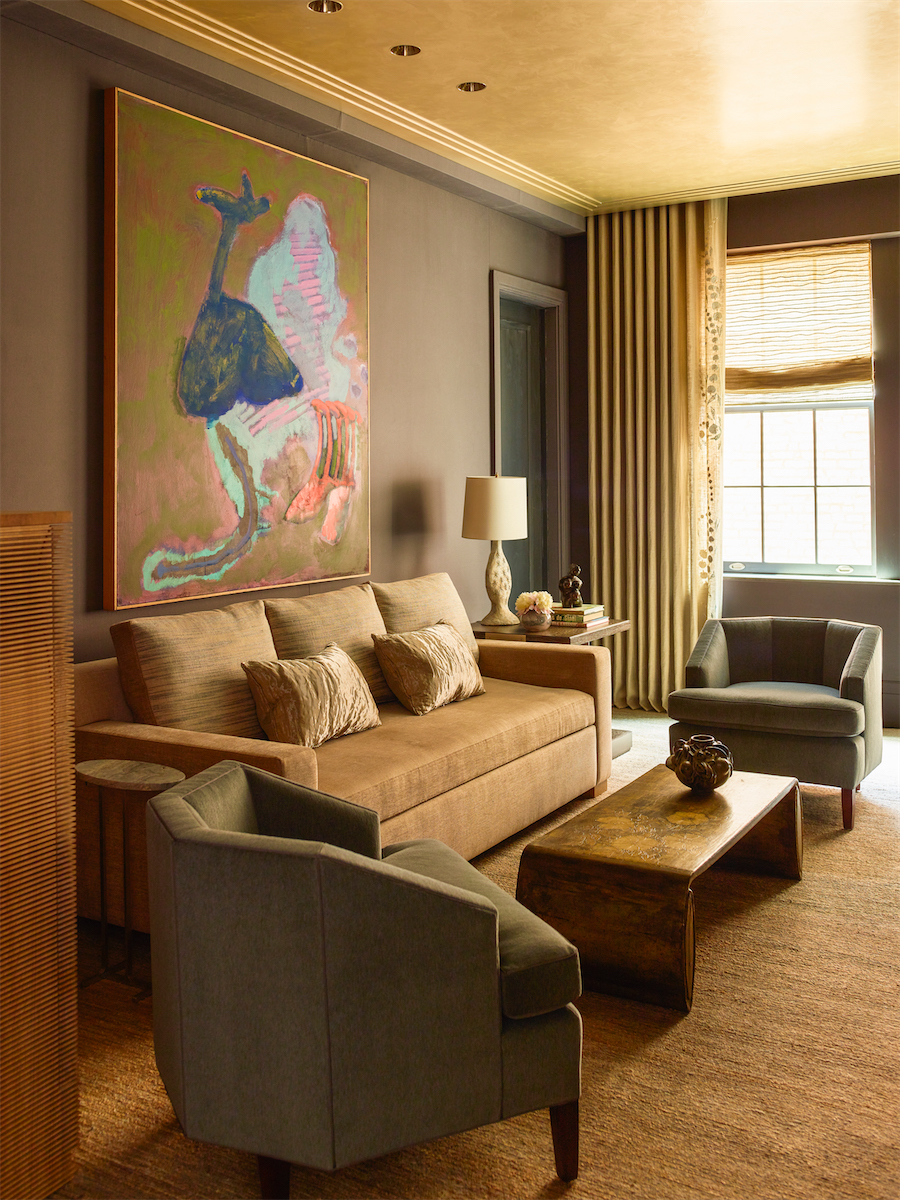
“All My Clients Are My Best Friends” — Emily Summers
The 1920s apartment had been updated over the decades, but the original layout and architectural details had been left intact — along with the ancient plumbing and electricity. “If you turned on your hair dryer the lights went out,” she says. New York architect Alexander Peabody Stoltz was enlisted to bring the apartment into the 21st century. In addition to updating the kitchen and bathrooms, he elevated and widened the room openings to bring volume and visual flow to the apartment.
“We didn’t remove a single wall,” she says.
The collector’s longtime friend, designer Emily Summers, who had done her Dallas house, also handled the Manhattan apartment’s interior design. “All my clients are my best friends,” Summers says. “It’s fun to travel with them and work with them. What I want to do is put their personality into the project. That’s the main thing.”
Summers and her client have shared a love of mid-century and French ’40s furnishings and decorative arts for as long as they’ve known each other — some 30 years. “My client became a very well-known dealer in ceramics and jewelry of those eras,” Summers says. “She’s also fortunate because she got in very early on the purchase of furniture by great designers like Jean Royère. She has a fantastic collection.”
Many pieces in the apartment were brought back from trips to Paris over the years, and some were purchased from Summers’ former store in Highland Park Village. The client and her husband also collect contemporary works by noted artists Larry Poons, John Altoon, Frank Bowling, Teresita Fernández, Ettore Spalletti, and Otto Piene, among others.
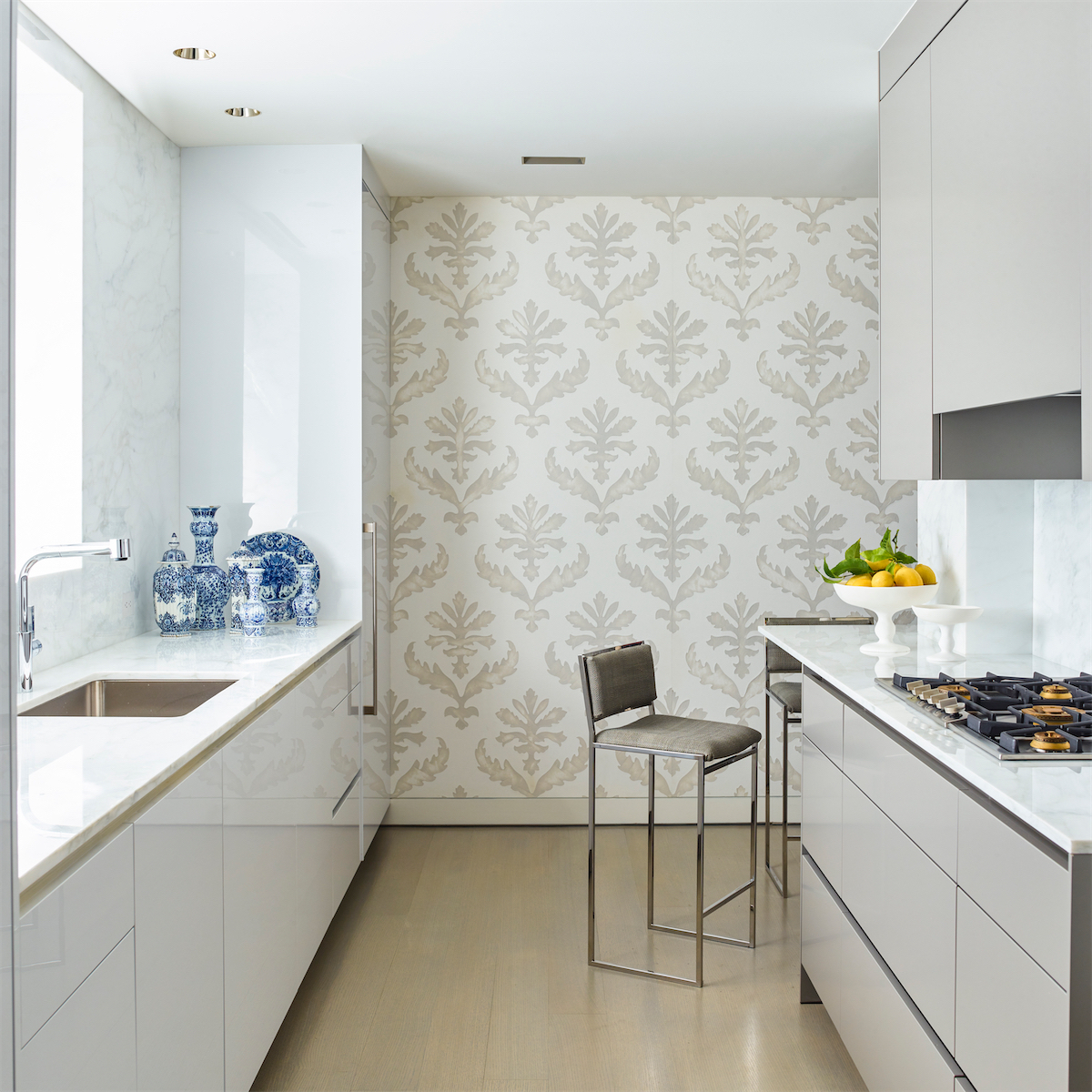
Refined backdrops for equally refined collections are a must, so Summers enlisted artisans to restore the walls and ceilings in Venetian Marmorino plaster, an ancient material frequently used to rejuvenate historical properties. Infused with minerals, the plaster gives surfaces a glossy marbled effect and bounces light. Walls and moldings in the study were upholstered in custom wool felt by Gretchen Bellinger, whose fabric designs are in museums around the world including the Metropolitan Museum of Art.
The kitchen wallpaper is a handmade plaster relief pattern by Lori Weitzner, whose work is in the permanent collections of the Cooper Hewitt, Smithsonian Design Museum. Several of the light fixtures double as works of art, including a custom plaster pendant in the bedroom made by French sculptor and furniture maker Philippe Anthonioz. Now in his late 70s, Anthonioz has worked with Summers on commissions since the 1990s. The dining room’s twinkling LED chandelier was designed by Bastien Carré, an artist the client discovered 15 years ago at a design show in Paris. Summers and her client, along with architectural lighting designer Barbara Bouyea, traveled to Carré’s studio in the south of France to commission the complex piece, which took about a year to complete and install.
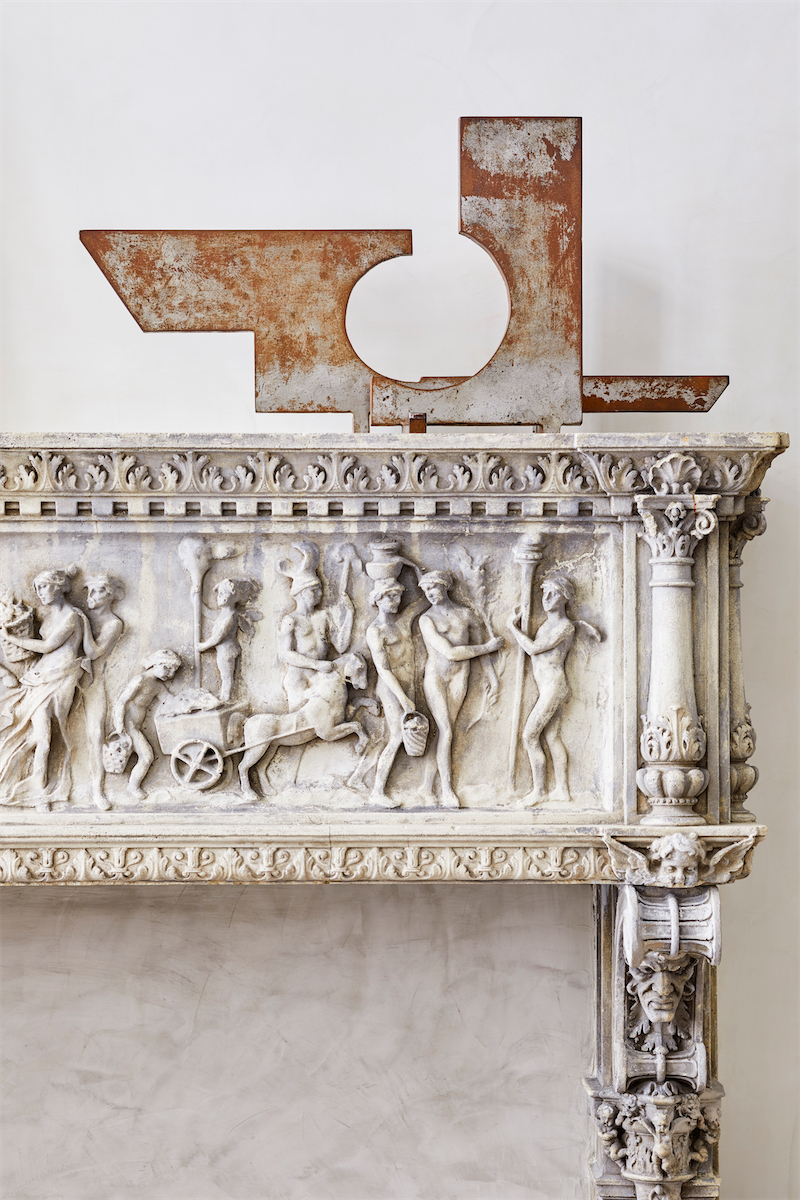
“My client loves sculptural shapes, so I looked for furnishings I knew she would gravitate to,” Summers says of the living room’s curvy vintage Italian sofa and chairs. A rare bronze coffee table by French sculptor Félix Agostini holds some of the client’s favorite pieces, including a Harry Bertoia sculpture, 1960s Scandinavian ceramic, and Darcy Miro candlestick. The client’s collection of rare furniture includes dining chairs by Danish architect Kaj Gottlob and a pair of 1930s leather armchairs by another Dane, master cabinetmaker Frits Henningsen. Two cherished pieces — a slate-and steel library table and small patinated metal sculpture atop the fireplace — are by late Italian-Argentine sculptor Marino di Teana, who has works displayed in Paris at the Centre Pompidou and Musée d’Art Moderne. There are also furnishings by contemporary masters, such as a leather bench by architect and designer Peter Marino and a cabinet by British furniture designer Gareth Neal.
“Neal is one of the great furniture makers, and just to have a piece of his is amazing,” Summers says. The remarkable commode combines both contemporary and classical design shapes, appearing to have a traditional bombe chest emerging from the carved and fragmented block of wood.
The interiors’ soft lavender-and-gray palette was inspired by colors from the stained-glass panels, with upholstery in plush velvets by Bergamo and exquisite leathers by Jerry Pair. Several hand-knotted rugs are by Tai Ping Carpets, maker of rugs for Buckingham Palace, the Elysée Palace, and the King of Thailand. Rich with beautiful materials and rarefied collections cherished by the owners, the apartment feels happy and comfortable — in other words, perfect.
“There is a point for me where a room reaches nirvana, where it can’t be any better,” the owner says. “I see my rooms, my art, my objects every time I walk in, and how it looks is important because it affects the way I feel every day. I wouldn’t change a thing.”
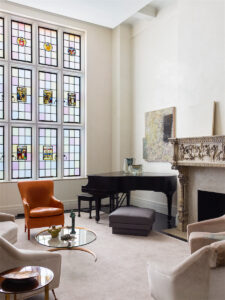
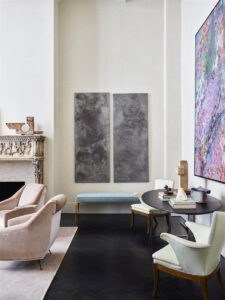
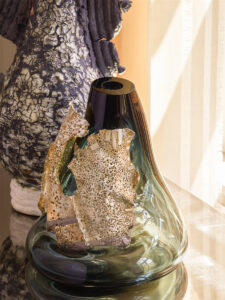
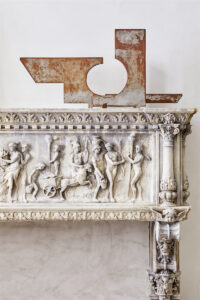


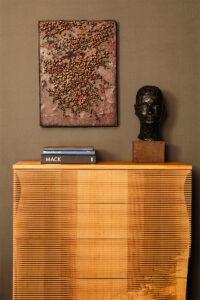

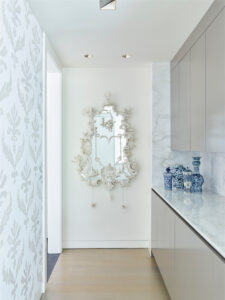


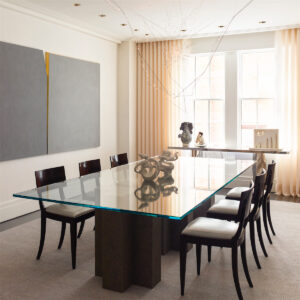


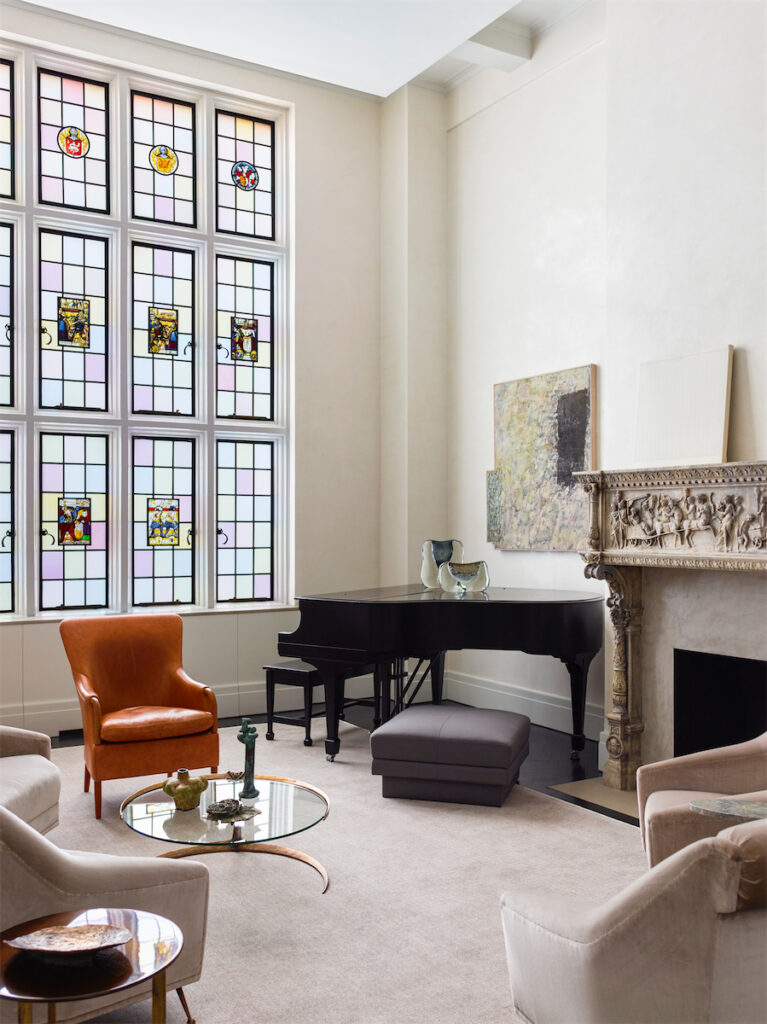
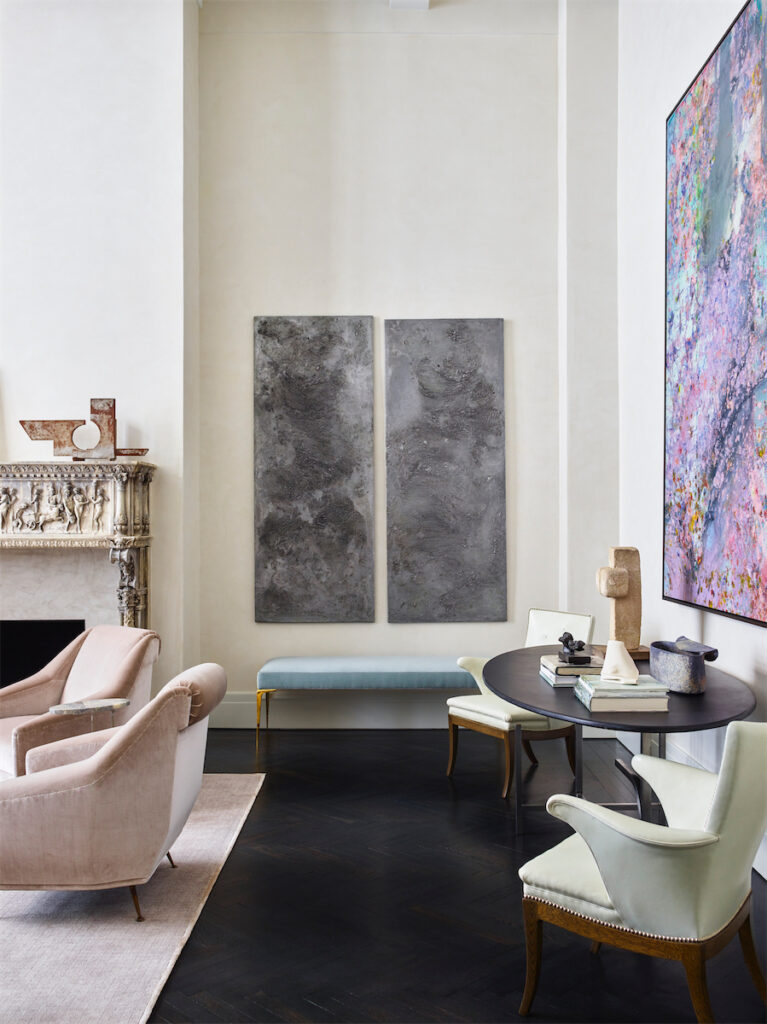
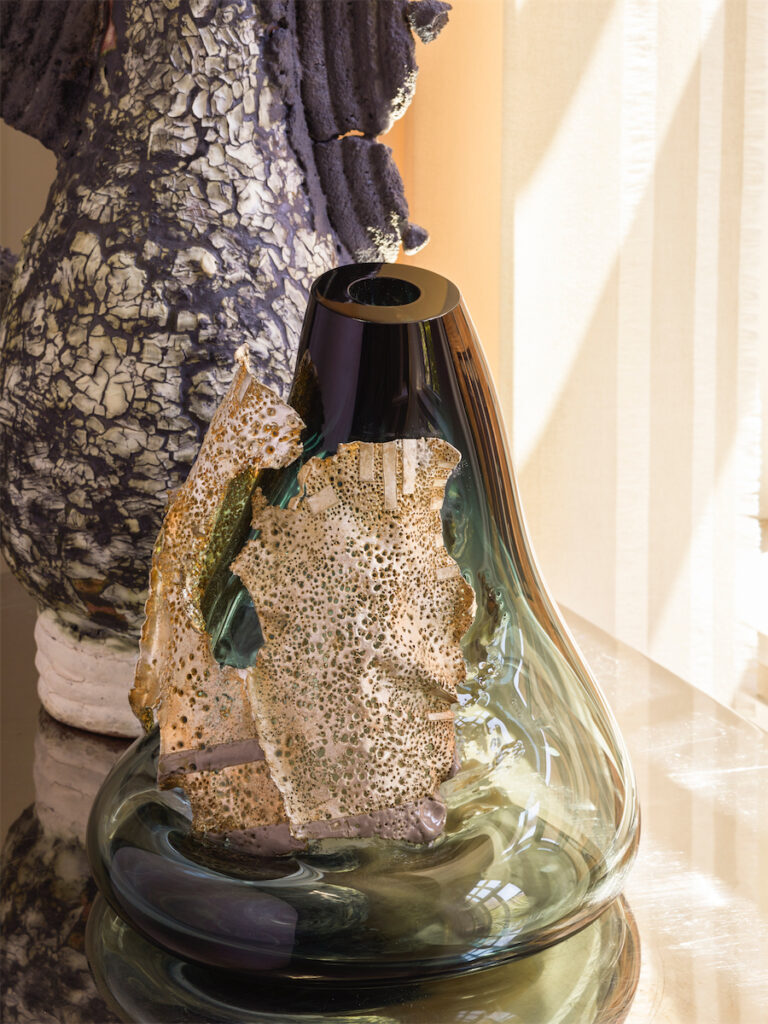
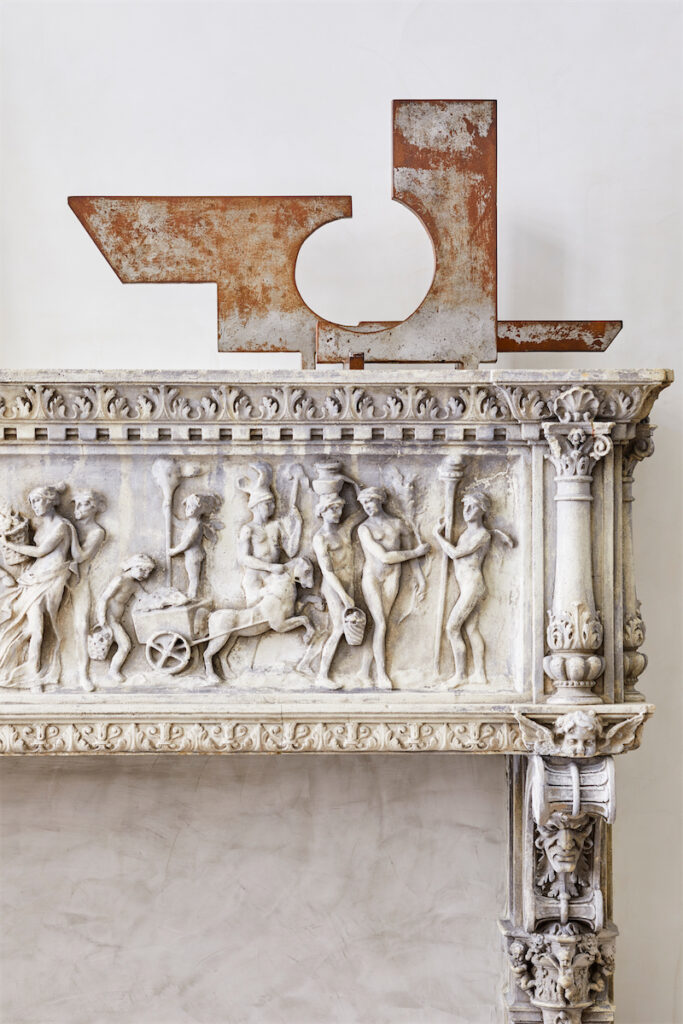

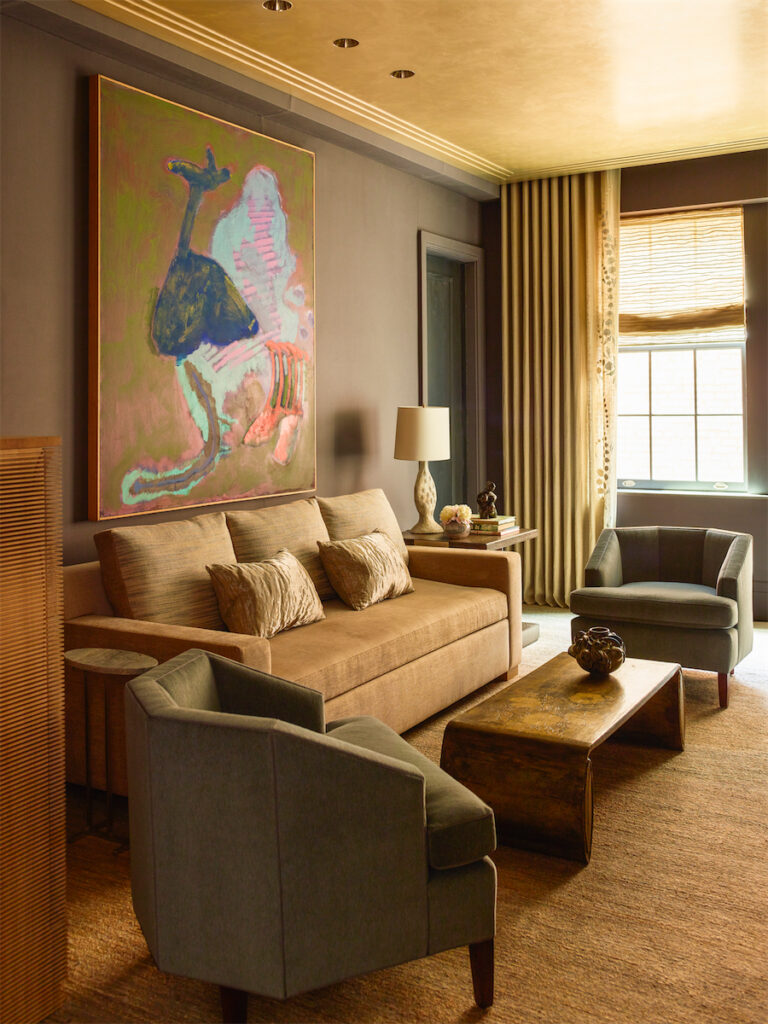


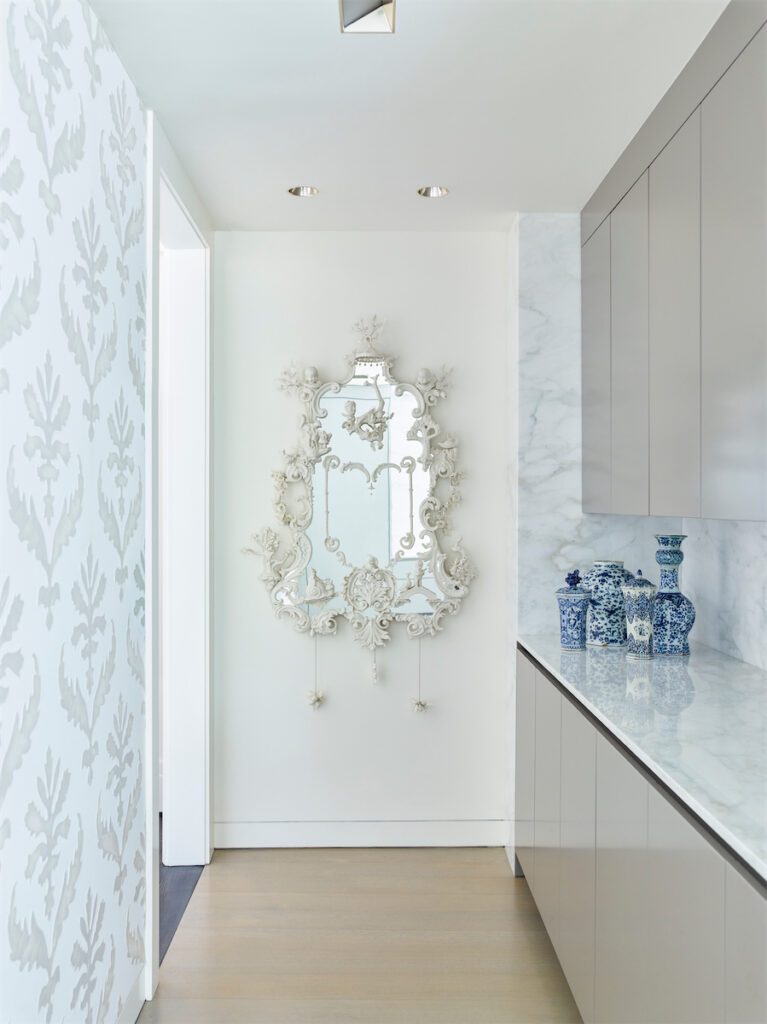
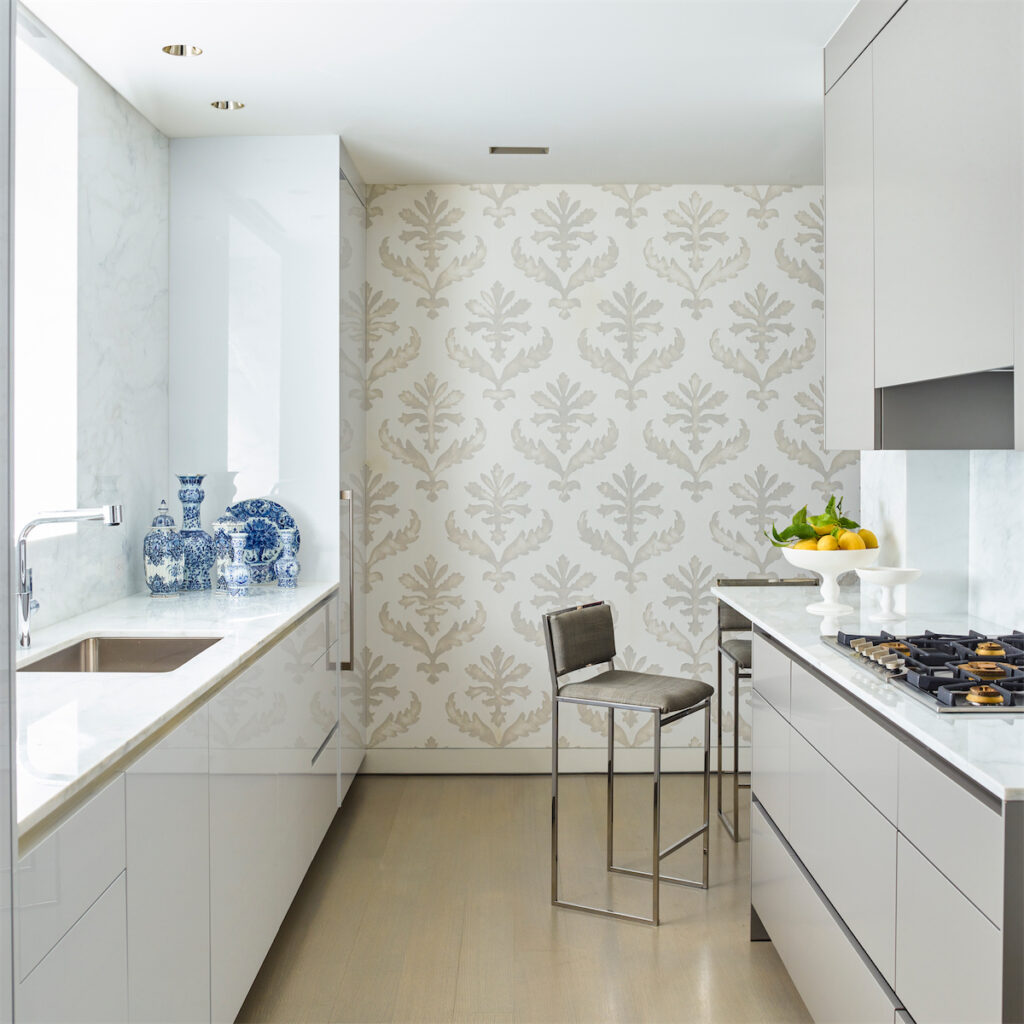
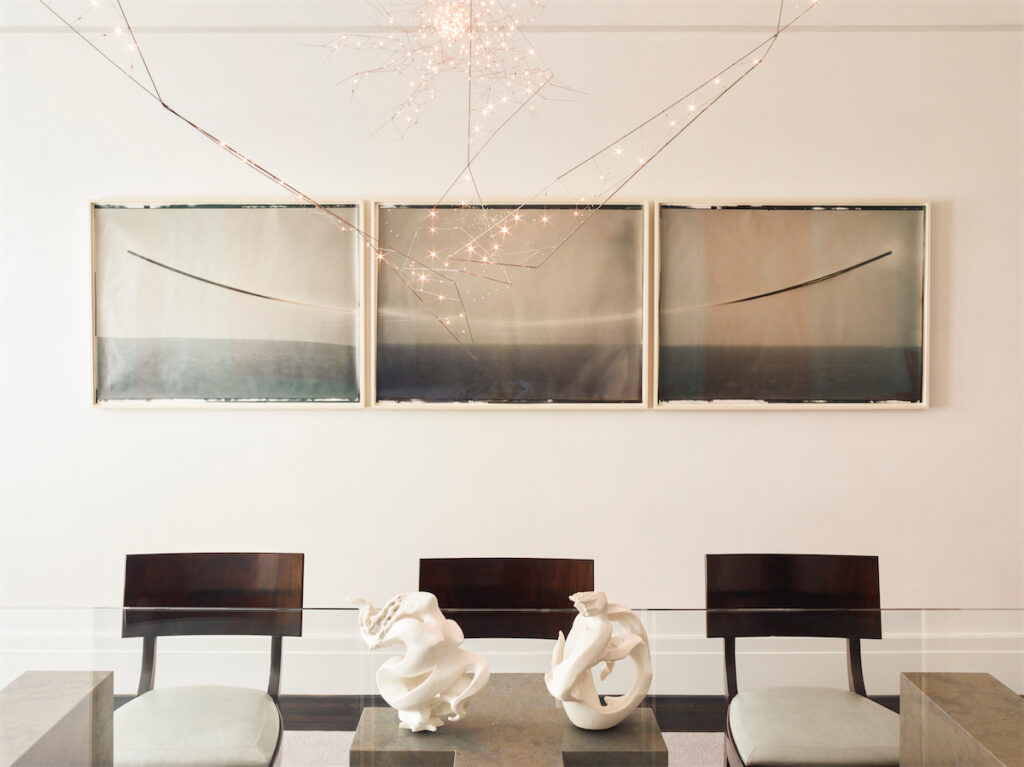

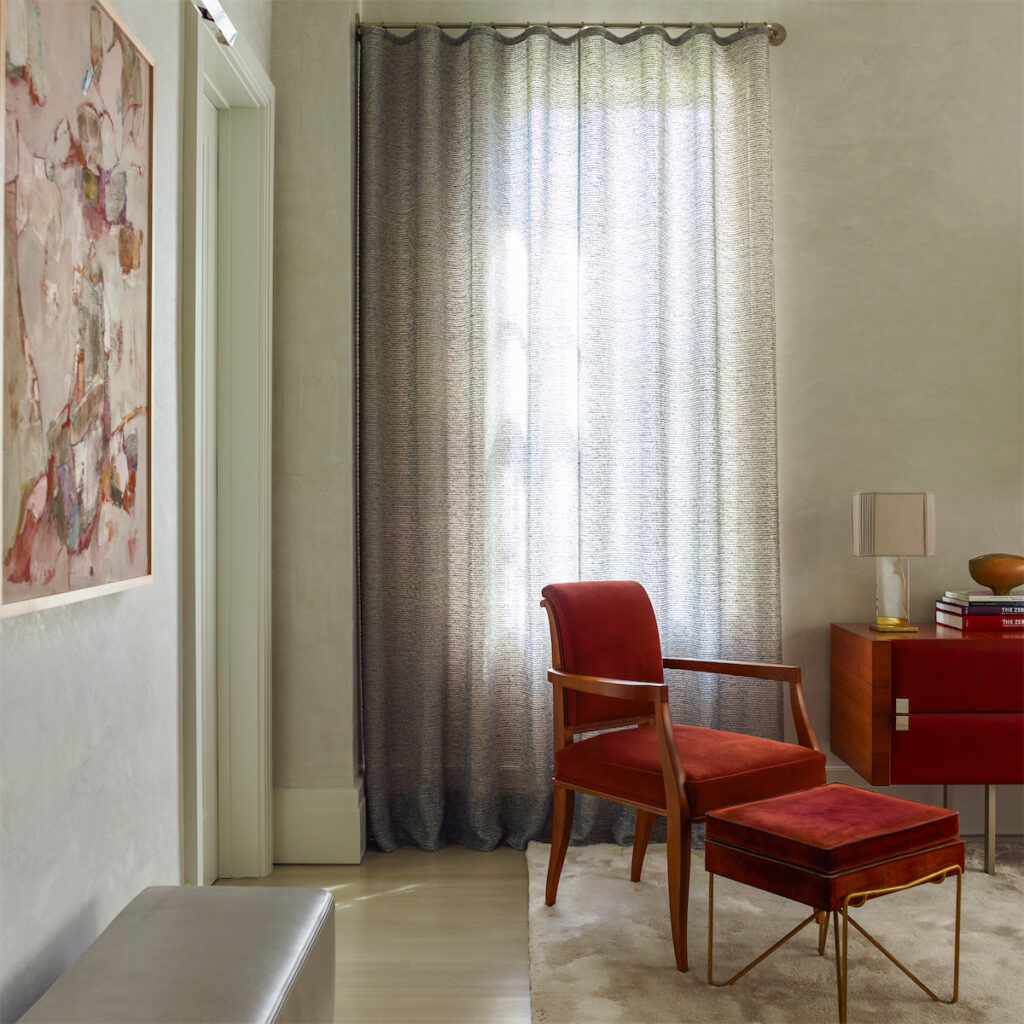
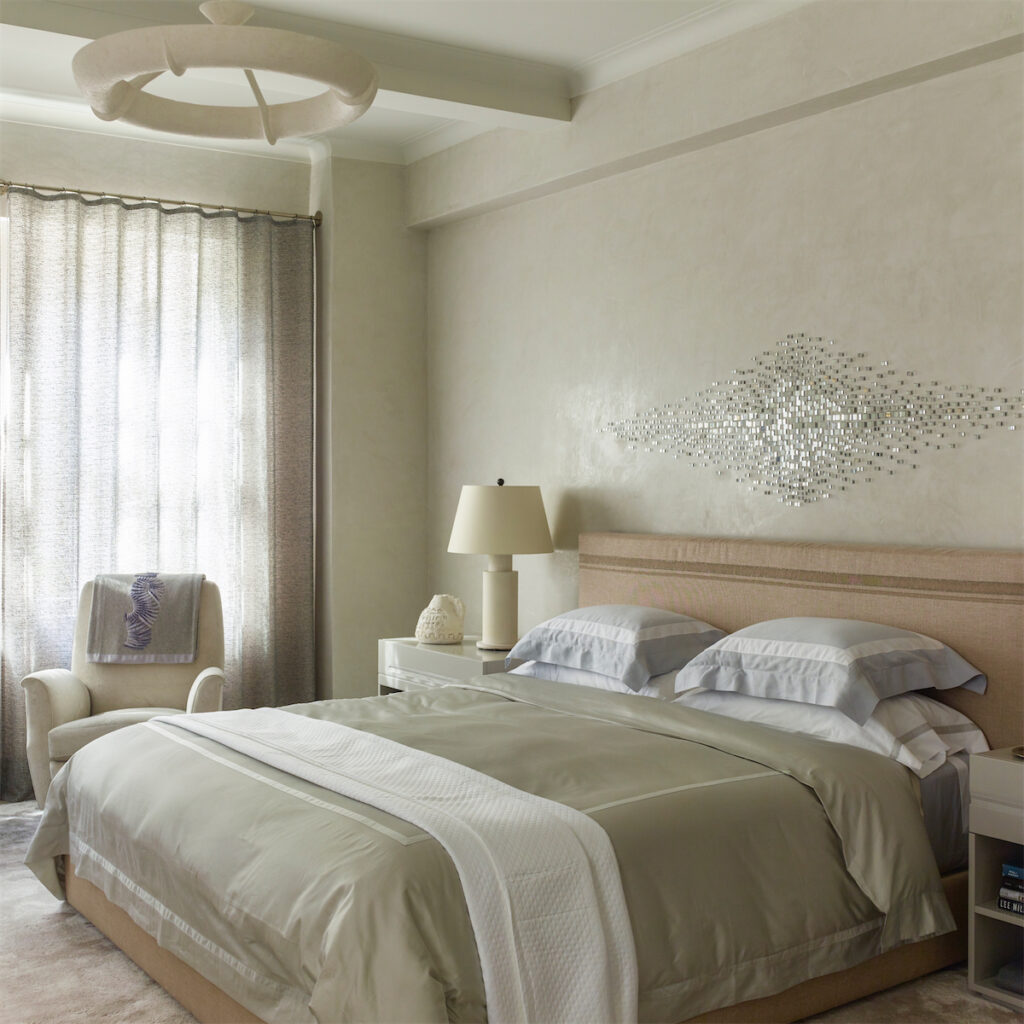
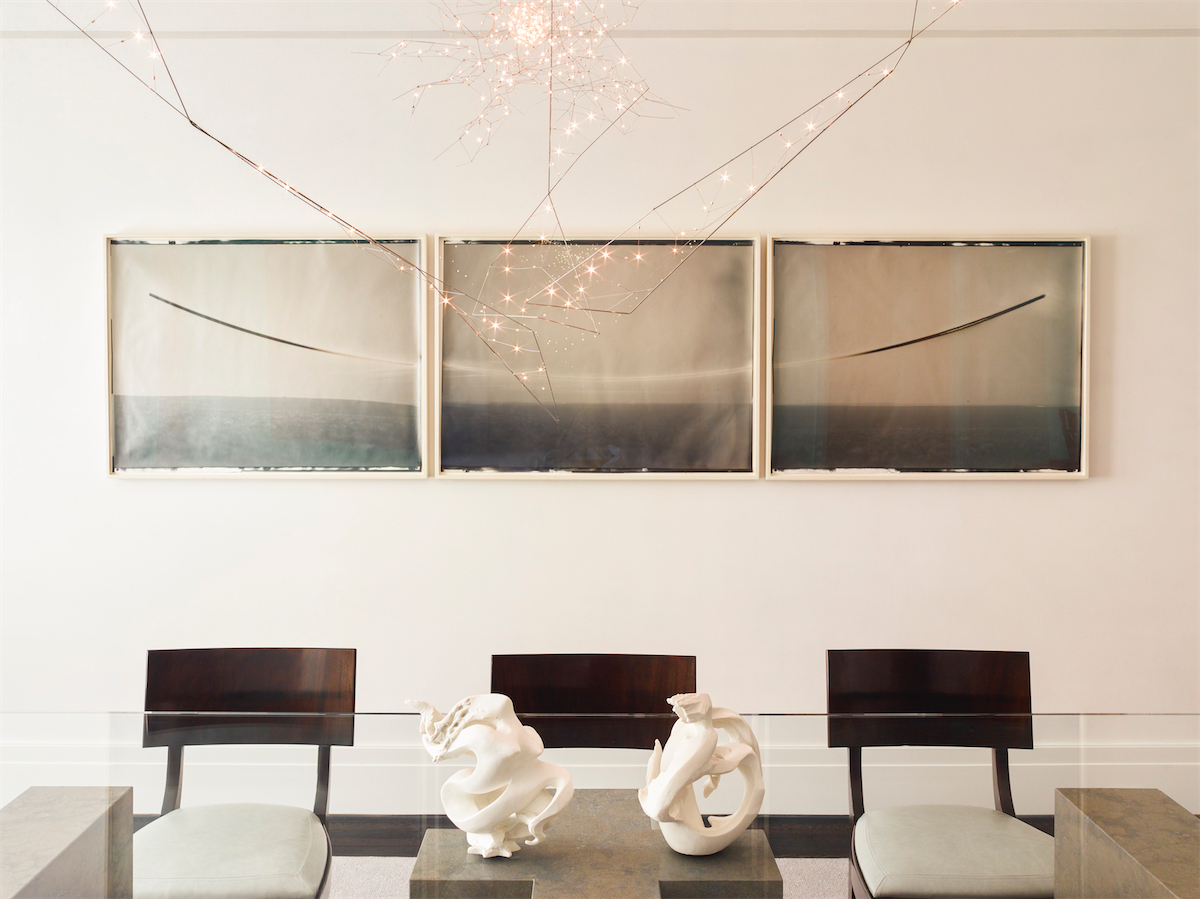
















_md.jpeg)

